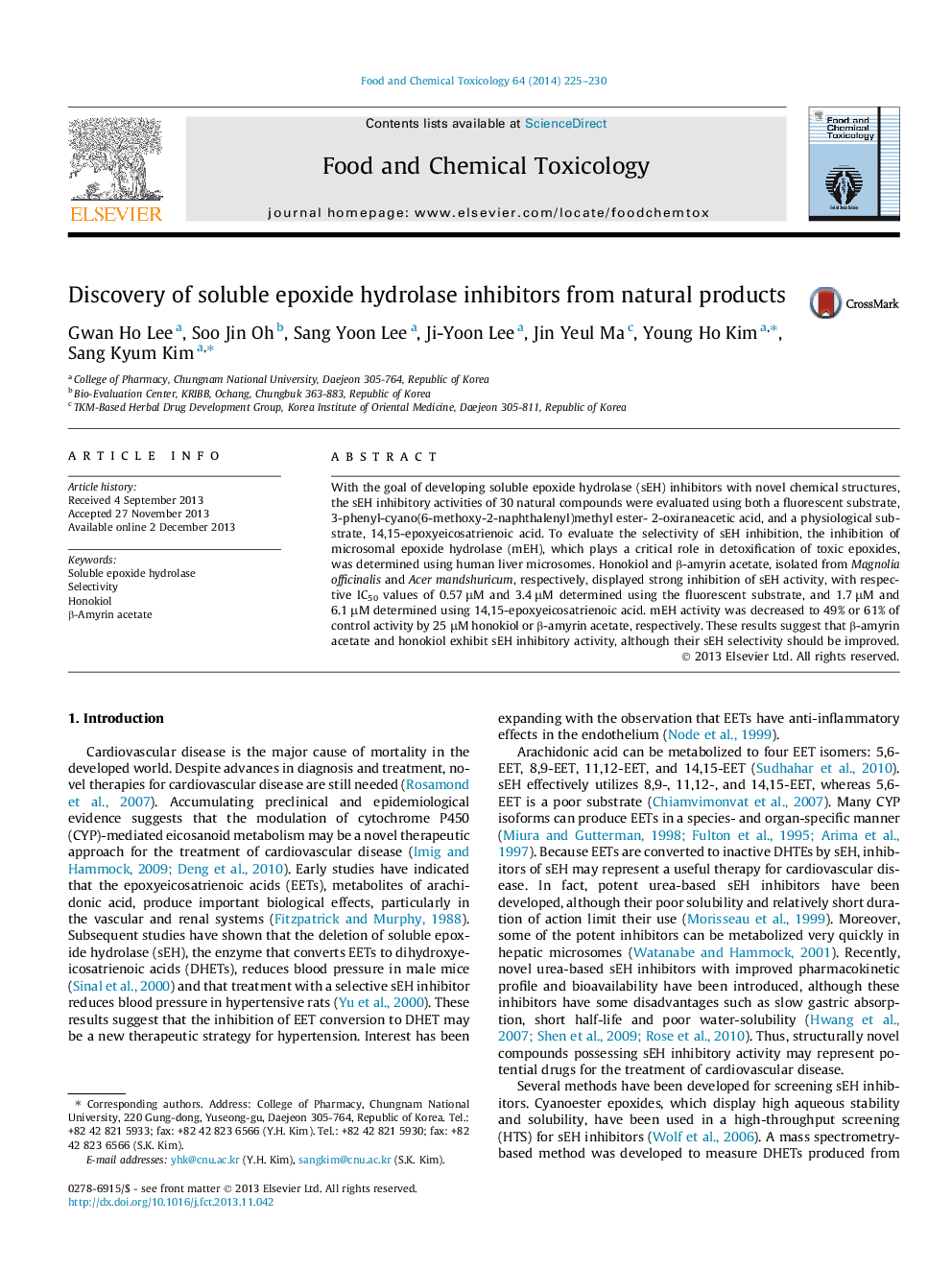| Article ID | Journal | Published Year | Pages | File Type |
|---|---|---|---|---|
| 5850905 | Food and Chemical Toxicology | 2014 | 6 Pages |
Abstract
With the goal of developing soluble epoxide hydrolase (sEH) inhibitors with novel chemical structures, the sEH inhibitory activities of 30 natural compounds were evaluated using both a fluorescent substrate, 3-phenyl-cyano(6-methoxy-2-naphthalenyl)methyl ester- 2-oxiraneacetic acid, and a physiological substrate, 14,15-epoxyeicosatrienoic acid. To evaluate the selectivity of sEH inhibition, the inhibition of microsomal epoxide hydrolase (mEH), which plays a critical role in detoxification of toxic epoxides, was determined using human liver microsomes. Honokiol and β-amyrin acetate, isolated from Magnolia officinalis and Acer mandshuricum, respectively, displayed strong inhibition of sEH activity, with respective IC50 values of 0.57 μM and 3.4 μM determined using the fluorescent substrate, and 1.7 μM and 6.1 μM determined using 14,15-epoxyeicosatrienoic acid. mEH activity was decreased to 49% or 61% of control activity by 25 μM honokiol or β-amyrin acetate, respectively. These results suggest that β-amyrin acetate and honokiol exhibit sEH inhibitory activity, although their sEH selectivity should be improved.
Related Topics
Life Sciences
Agricultural and Biological Sciences
Food Science
Authors
Gwan Ho Lee, Soo Jin Oh, Sang Yoon Lee, Ji-Yoon Lee, Jin Yeul Ma, Young Ho Kim, Sang Kyum Kim,
